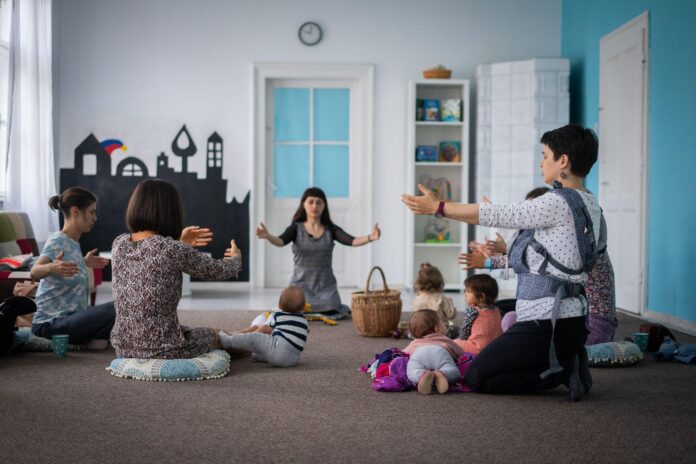The World Health Organisation (WHO) has teamed up with New York University’s Steinhardt School, the nomadic art non-profit Culturerunners and the Saudi-founded philanthropic foundation Community Jameel to launch the Jameel Arts & Health Lab, which aims to research how the arts can improve the health and well-being of individuals and communities.
“The lab seeks to inform policy and scale up effective arts-in-health interventions around the world to improve the health and well-being of millions of people, particularly among overlooked and underserved communities,” says George Richards, the director of Community Jameel. “We hope the lab will continue to advance the role of the arts in health, including in some of the most difficult contexts, like post-conflict recovery.”
This is the WHO’s first-ever major initiative linking arts and public health, and it comes following the organisation’s 2019 report linking access to the arts with improved health. Based between NYU Steinhardt in New York City and the WHO’s Regional Office for Europe in Copenhagen, the lab’s ultimate goal is that the findings of its research will ultimately inform public policy across all 194 of the United Nations’ member states.
“We are speaking first and foremost about measurably improving health and well-being through the arts,” says Nisha Sajnani, a professor at NYU Steinhardt and a co-founder and co-director of the Jameel Arts & Health Lab. “Our focus is on overlooked and underserved communities, and with that focus we will coordinate a global network of research centers and amplify research into the effectiveness of the arts in improving health and well-being.”

Jameel Arts & Health Lab launch event on 27 February at the National Arts Club with, from left, Cléa Daridan of Community Jameel, Stephen Stapleton of Culturerunners, Christopher Bailey of WHO, Jack Knott from NYU Steinhardt, Fady Jameel of Community Jameel, Nisha Sajnani of NYU Steinhardt and George Richards of Community Jameel. Photo by Ben Ouriel/New York University
The lab has thus far announced four major research efforts taking place throughout 2023: a look into how music and singing might help women with postnatal depression (a past study found that enrollment in a ten-week singing program for 134 mothers with postnatal depression symptoms resulted in a 38% reduction of their symptoms); a look at how a permanent digital culture archive made by Yazidi women survivors of the genocide perpetrated by Islamic State in Northern Iraq in 2014 might support these and other survivors; research into the social and psychological impacts that access to the arts can have on people with dementia and their caretakers; and research into the role that art can have in hospital settings, both to the benefit of patients and healthcare staff.
“If we have enough evidence, for example, stating that singing has a particularly powerful role to play in postpartum depression, we’ll organise that research in such a way so that a decision-maker can understand how to act on it. This means that they might be encouraged to ensure that music and singing programs are available in health centers where birth parents are able to access them with greater ease, because we know that it has that kind of effect,” says Sajnani. “If we know that these kinds of low-cost activities have such a significant health effect, then the obvious policy recommendation would be to make them widely available.”
She adds that the lab is a unique opportunity to bring artists, neuroscientists, psychologists and mental health professionals, for example, all into conversation, and then to deliver their findings to “policy makers who are able to take the outcomes of this research and have it make an impact that changes people’s lives for the better”.
The lab was formally launched with an event at the National Arts Club in New York on 27 February.

























